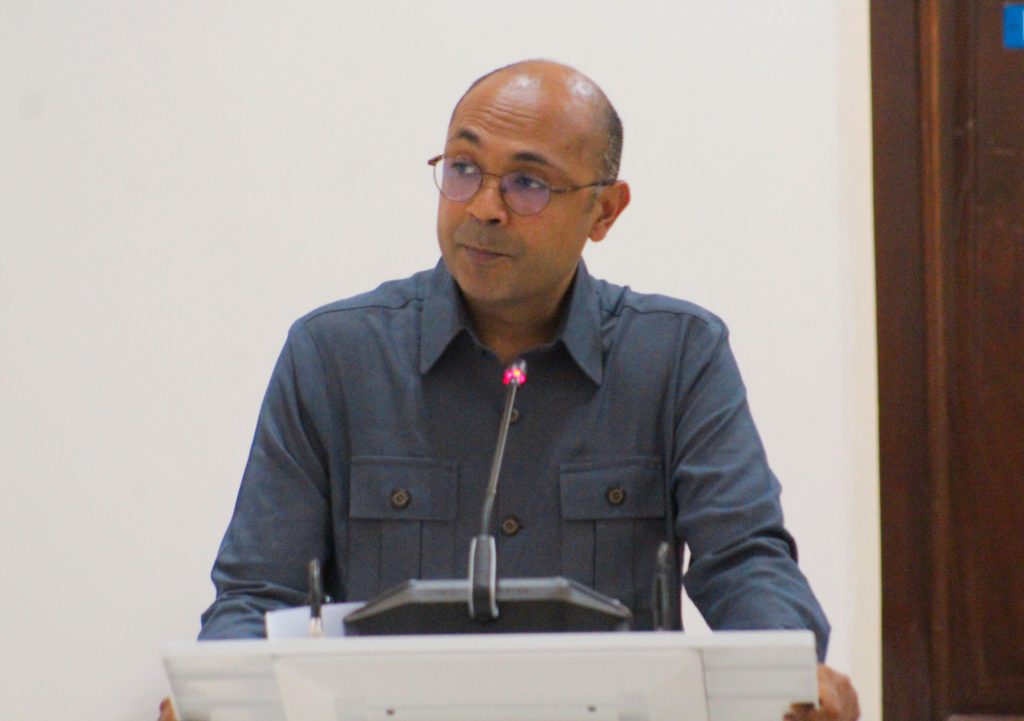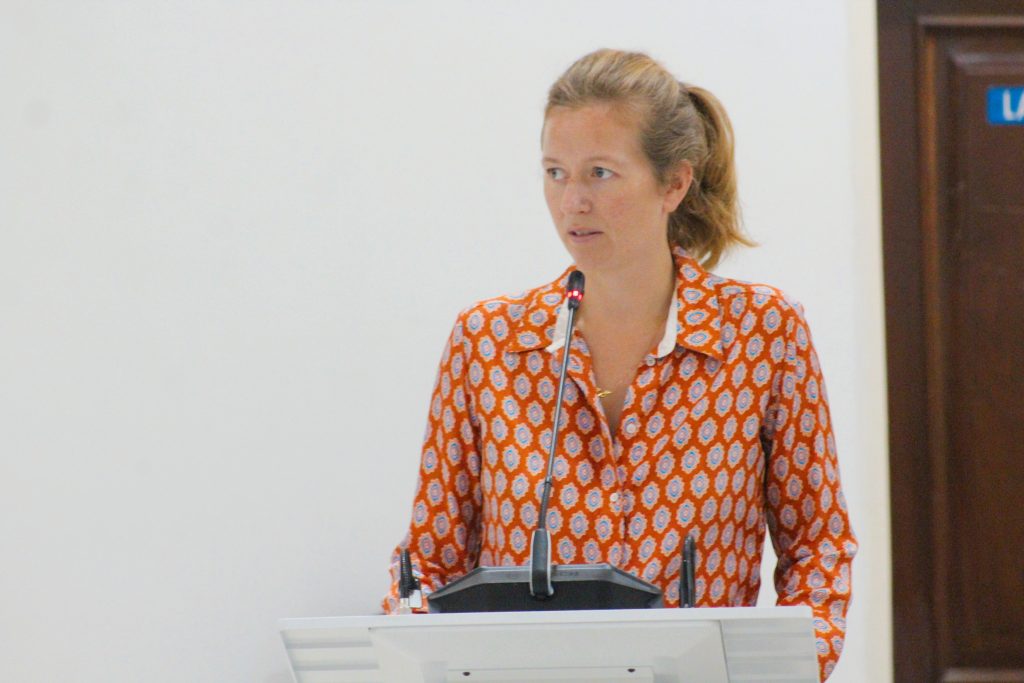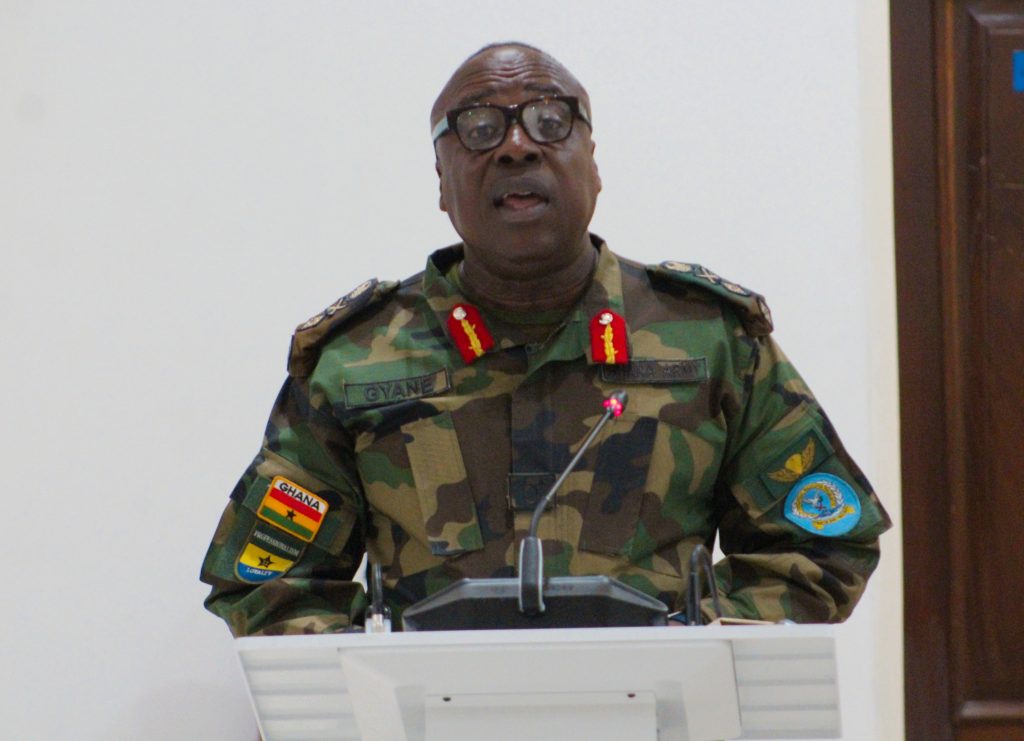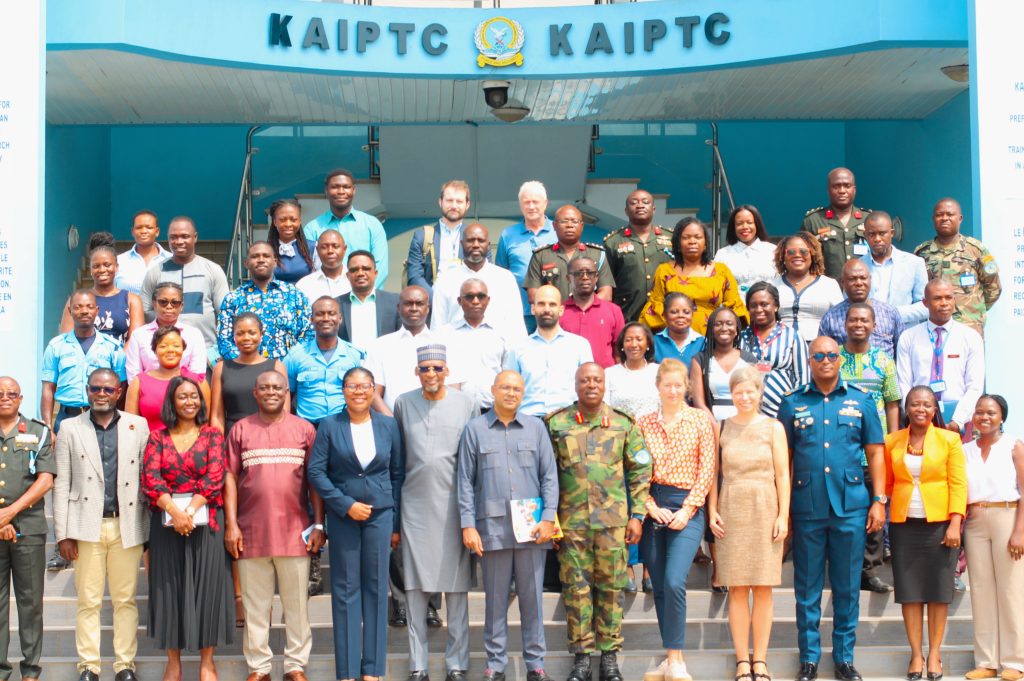By James Amoh Junior
Accra, Feb. 13, GNA – The Kofi Annan International Peacekeeping Training Centre (KAIPTC) has received Information Communication Technology (ICT) equipment from the European Union (EU) and Germany’s Federal Ministry of Economic Cooperation and Development (BMZ).
The hi-tech equipment is expected to improve the Centre’s e-learning capabilities and expand virtual engagements in Peace support Operations.
The items include 30 laptops, three projectors, a conferencing machine, and 10 (75 inch) interactive screens.
It is part of a wider initiative under the ECOWAS Peace and Security Architecture and Operations Project which started in February 2019 with funding by the European Union and the German Government.
Mr Irchad Razaaly, EU Ambassador to Ghana, who joined other dignitaries, staff and the Executive Management of KAIPTC to present the equipment, noted that the EU was by far the main financial partner of ECOWAS, and that enhancing the capacity of the sub-regional body and its member states in conflict prevention and management, and fostering regional cooperations was key.
He said in an increasingly interconnected world, where conflicts transcended borders more than ever before, the importance of robust platforms could not be over emphasised.
Amb. Razaaly said the IT equipment would not only facilitate knowledge-sharing, but also foster a deeper understanding of the complex international dynamics inherent in Peace Support Operations.

He said the ECOWAS Peace and Security Architecture and Operations Project presented a significant step forward in fostering regional stability in West Africa, especially at a time when the region was going through “intense turbulence”.
Amb. Razaaly said the EU remained steadfast in its commitment to peace and security efforts in the region from border management to combating terrorism financing, adding international crime, facilitating cross-border information sharing, and bolstering conflict prevention and mediation.
The EU Ambassador further stated that peacebuilding was a complex and multifaceted endeavour requiring a holistic approach.
According to him, while technical capabilities were undoubtedly crucial, sustainable peace also depended on addressing underlying root causes, promoting inclusive governance, fostering social cohesion, and empowering local communities.

Ms Sivine Jansen, a representative of the German Embassy in Ghana, said the support was to strengthen the centre’s role and contributions to the ECOWAS Peace and Security Architecture.
She said Germany continued to support peace efforts in the sub-region, ensuring a prosperous and secure sub-region through capacity building in Peace Support Operations.
Ms Jansen said the use of the new technology for virtual learning and online teaching would make the centre more sustainable while improving the quality of training delivery with the use of more global experts.
She reiterated the commitment and dedication of the German government, in collaboration with the EU through the ECOWAS Peace and Security Architecture Operation (EPSAO) Project being implemented by GIZ, to supporting peace and security efforts in West Africa.

Major General Richard Addo Gyane, Commandant, KAIPTC, who received the equipment on behalf of the Centre, expressed appreciation to the Federal Republic of Germany for its continuous ICT infrastructural support to the centre’s operations.
He said with the international community still reeling under the shocks of the COVID-19 pandemic and insecurities in certain critical parts of the globe, the Centre deemed it reassuring that Germany considered it in its international commitments.
The Commandant said it also deepened the commitments of agencies like GIZ/EPSAO to the channels of support currently in place to guide their relationship.
“We are indeed grateful for the deep understanding of the needs of the Centre and the readiness to direct resources to this effect.”

Ambassador Baba Gana Wakil, Resident Representative, ECOWAS Commission, said Peace Support Operations as a component of the overall efforts in achieving digitalisation of Human Capital Development agenda in the sub-region was imperative.
He said without ICT compliance to human capital development in the sub-region, the various efforts at regional integration, including provision of infrastructure and trade promotion would not materialise.
GNA